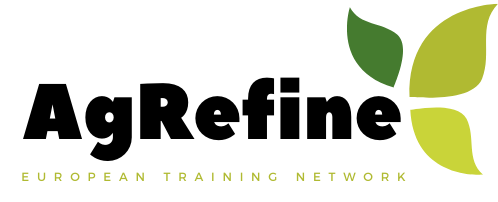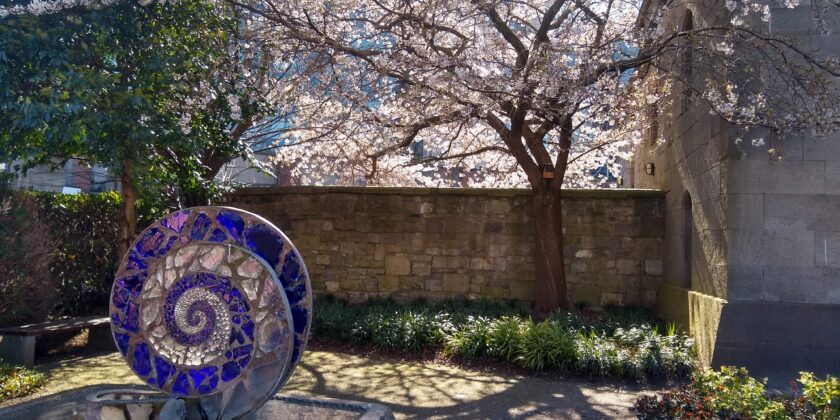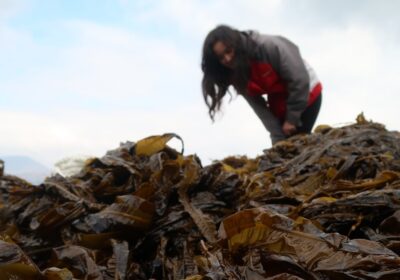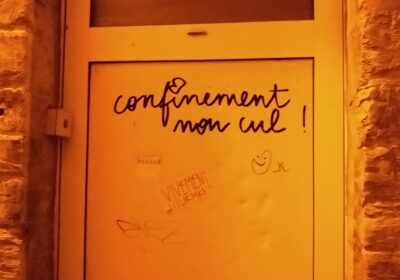We went to Ireland!
Cork and Dublin
The AgRefine consortium organized for its PhD students – or rather workers – a technical writing class in Ireland. The course took place over two mornings in beautiful Cork, where we were blessed with beautiful weather and lovely people. We might have missed some of the charms of the city while attending the class in the basement of the hotel, but a second breakfast was served, which is arguably a good enough compensation. We took the time to stroll around the city during the first afternoon, but only! The second afternoon, we rushed after lunch to the train station to jump on a train to Dublin, where the Saint Patrick’s Day’s celebrations were taking place – coincidentally – the very next day.
Dublin, just as Cork, turned out to be a wonderful town. We had the delight to visit not one, not two, but three bars! We also saw the parade, some live music, and quite a lot of cheerful celebrations. Wonderful! Come the next day, most of us flew back to our home institutions, ready to go back to work. From the lectures, we got some healthy tips on writing for the industry, which I could summarize as such: make it boring and concise, don’t use colons, don’t use dashes, and for the love of god, if you’re gonna list things, make a list. From the parties, we got a bit of a hangover, a healthy dose of love and good memories.
Bittersweet memories
I had never been to Ireland before. Now that I am back in Vienna, I am left wondering: “What do I know of Ireland that I didn’t before?” The truth is, not a lot. I met a bunch of drunk Irish people, but there are so many Irish pubs worldwide that this is, in no way, an achievement or a first. I saw the parade, but from such a distance that it was more convenient to watch it on TV. I saw some bits of Irish countryside from the window of the fast train. But wait, I still saw two Irish cities so I get to say that I did Ireland! Except that it’s not remotely true. I don’t know the country, I don’t know the culture. I don’t even know the cities I visited.
At AgRefine, we work in sustainability. We are committed to a transition to a more sustainable society. We develop technologies and tools to establish a circular bioeconomy. We know about Life Cycle Assessments, carbon footprints, governance, societies, long and short supply chains, social impacts. We concentrate heaps of academic knowledge, have one of the best funding, and to a certain extent we have the luxury of time.
At AgRefine, we work in sustainability but still we put roughly ten people on planes to travel thousands of kilometres to have a technical writing class. A class which can take place online, as it has for two years. A class which I would not have chosen for me, although I enjoyed it to a degree. I must admit that it does not make any sense to me. From Vienna, round trips to Dublin emit about 630kgCO2/person1. From Copenhagen, a bit under 500 kg[1]. From Thessaloniki, 929 kg[1]. From Brussels or Amsterdam, about 360 kg[1]. To put this in perspective, emissions per capita must go down to 2.3TCO2 if we are to limit global warming to 1.5°C[2], which is already a degree of warming full of negative consequences[3]. At the rate the world is going, we will reach this threshold within 10 years[4].
As such, the memory of Ireland is somewhat bittersweet. What we have is at the expense of others and of future generations. This is not acceptable. There is no way around it. Does this mean that we can never travel nor meet each other? No, I don’t believe that it does. It means however that we need to radically change the way that we view travelling and how we choose to spend our time. Please note that the word “radically” in the last sentence is not a placeholder, it carries a heavy signification.
Travelling is a political statement
In this technological era, we should remember the initial promise of technologies: liberating people from work. Not increasing productivity, not increasing output, not allowing going through life without ever living a life. If there is one takeaway that cannot be negative from this trip, it is happiness. The happiness that we derive from connecting to one another, from being a community. That which we get from togetherness, and from time spent without any other purpose that what makes us happy. This is much more valuable than any course. It also happens to require time. Incidentally, it also requires not to take the plane and opt for trains or other, greener, modes of transportation.
Therefore, should we travel again as an AgRefine community, I plead that we do it for the right reasons and for the minimum impact. I make the sincere argument that it be for its people (us), not its workers (still us). That it be a way to foster a sense of community, of shared happiness. Indeed, when working from different countries, these are what we miss. We are AgRefine’s biggest resource. Does this mean that we should have all expenses paid vacations, on public money? Certainly not. It does mean however that we can organise events which political significance is not “I blew half my carbon budget and I couldn’t care less”. Our actions, as a community of academics working in sustainability, should scream that we fight against the ever oppressive and destructive neoliberal productivist system and that we fight for happiness. For us, and for all.
In the next episode, I shall tell about my experience trying to take trains and ferries to go to Ireland, and how it completely failed.
Bisous
Update: Further insights can be found in this 2021 doctoral thesis by Agnes Sophie Kreil titled “Reducing the climate impact associated with air travel: Shifting perspectives within and beyond Academia”
1. Source: CO2.myclimate. Figures calculated the 22nd of March 2022
2. Source: Oxfam Report, November 2021
3. Source: IPCC – 6th Assessment Report of the second Working Group, February 2022




